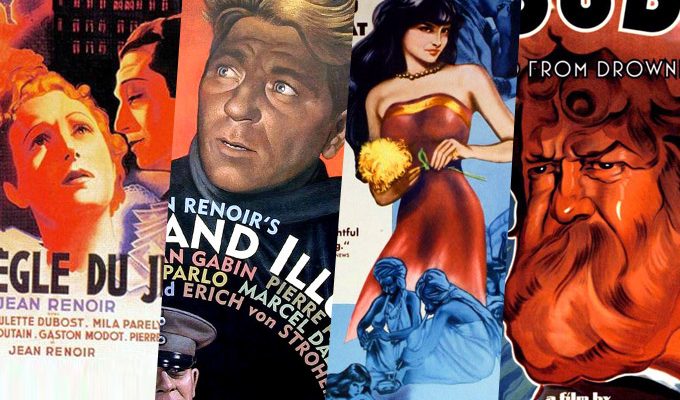 This week sees the Criterion Blu-Ray release of Jean Renoir‘s 1951 Technicolor wonder “The River.” The film’s narrator recounts memories of her childhood in India, how “time passed, unnoticed.” It’s a sentiment that pervades every great Renoir film, and of the 40 or so he directed, none are bad, most are great, and more than a few are essential. As the son of French Impressionist Pierre-Auguste, Jean Renoir’s life-long involvement with creativity was a foregone conclusion.
This week sees the Criterion Blu-Ray release of Jean Renoir‘s 1951 Technicolor wonder “The River.” The film’s narrator recounts memories of her childhood in India, how “time passed, unnoticed.” It’s a sentiment that pervades every great Renoir film, and of the 40 or so he directed, none are bad, most are great, and more than a few are essential. As the son of French Impressionist Pierre-Auguste, Jean Renoir’s life-long involvement with creativity was a foregone conclusion.
A true director’s director, loved and admired by the likes of Orson Welles, Peter Bogdanovich, Martin Scorsese, Wes Anderson and all the then-young guns of the emerging French New Wave, Renoir’s infallible romanticism and humanity flowed into all of his films. His motifs include theatricality, an idealization of country life, and the concept of a river, which often represented as the ultimate escape and always in flux. In his Observer article on Renoir, (with the no-nonsense headline, “The Best Director, Ever”), Bogdanovich writes “his films seem to grow out of the moment you are watching rather than being frozen in time,” and likens them to the movement of a river. It’s a perfect description of that je ne sais quoi element in Renoir’s films; never flashy, comical with a purpose, a bottomlessly deep understanding of cinematic storytelling, and uncanny timelessness.
In so many ways, Renoir is the progenitor of various techniques and movements that would go on to change cinema forever. He’s also famous for remarking “the awful thing about life is this: everybody has their reasons,” in his most lauded work, “The Rules of the Game.” Herewith, the Playlist’s rundown of 10 essential Jean Renoir films leading up to and including “The River.”
You know where to go to tell us about your favorite Jean Renoir film. ‘Til then, bon appetit!

“Boudu Saved From Drowning” (1932)
Renoir and actor Michel Simon transitioned from silent films to talkies hand-in-hand, working twice together before partnering up for a third and final time for “Boudu Saved From Drowning.” This familiarity, combined with Simon’s intimate understanding of “the perfect tramp,” (the actor played the part on stage before immortalizing it on the screen) and Renoir’s firm grasp on emerging technical aspects, make ‘Boudu’ a winning trifecta of director, actor, and character. The now-classic story follows Monsieur Lestingois (Charles Granval), an uppity bourgeois clump of a man, as he saves Boudu’s (Simon) life and decides to domesticate the shameless tramp and turn him into a gentleman. Hilarity ensues as Boudu upends every moral and ethical code in the Lestingois household. Renoir invested René Fauchois‘ play with an innate talent for cinematic storytelling, and changed elements of the story (most crucially the ending) in order to reflect his own sensibilities on class disparity, free will, and the complex societal fabric stitched by human relationships —themes that course through Renoir’s entire filmography. Early signs of his seamless directorial control are everywhere; a personal favorite sees Boudu searching for his dog and seeking help from a police officer. In a single take, the cop ignores him, only to help an affluent lady in a similar predicament (her dog is worth 10,000 francs, you see). Boudu is a free-spirited force of nature, rebelling against haute culture, and one of Renoir’s most entertaining characters. Special recognition should go to Simon’s staggeringly brilliant performance —he careens his eyes in angled lunacy and laughs at respectability wherever the current takes him.

